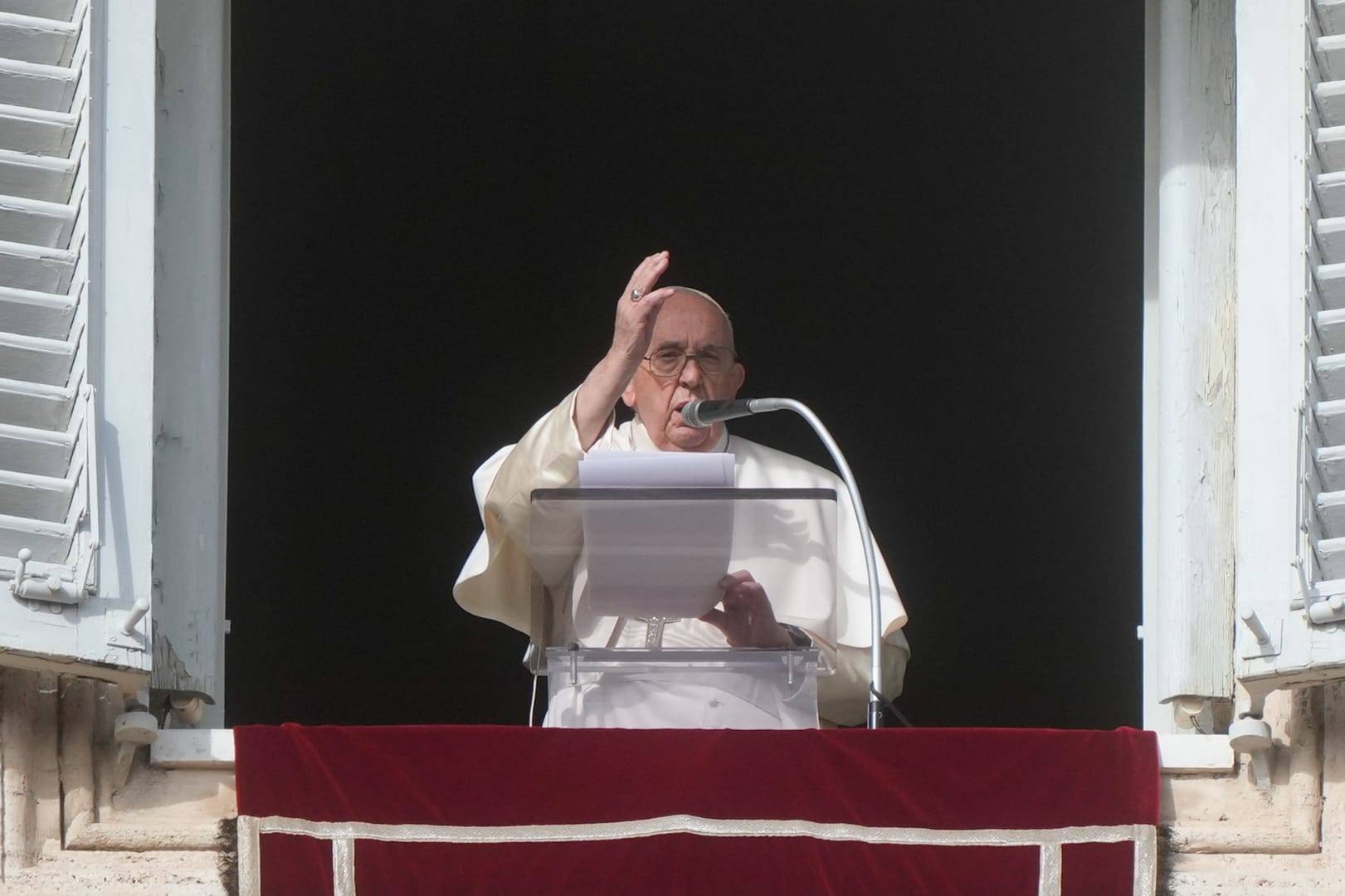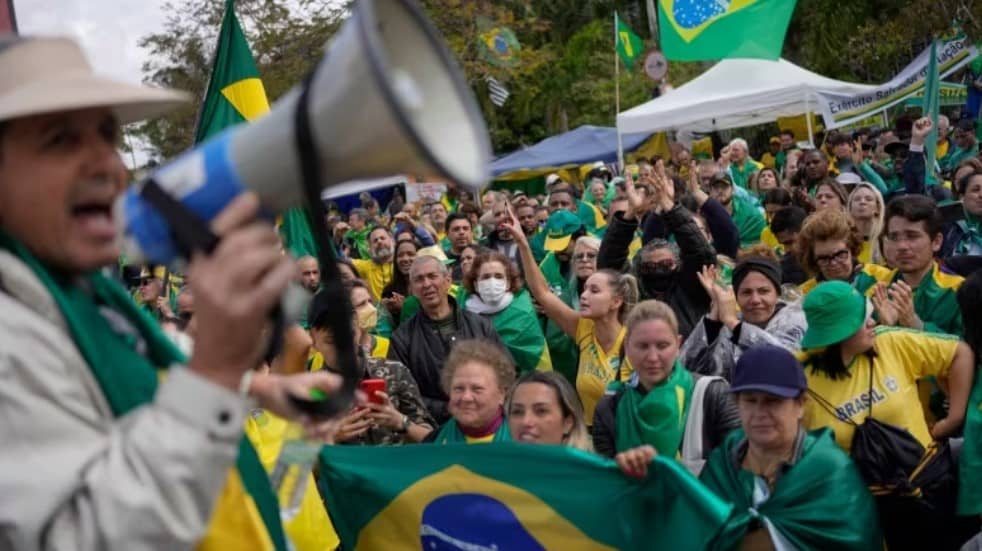YAOUNDÉ, Cameroon – Bishop Matthew Kukah has said prayers alone cannot be used to “wish away” the Boko Haram Islamist militant group in Nigeria.
The Bishop of Sokoto, in northern Nigeria, underscored the need for Christians to take the lead in forcing authorities to use their government budgets to educate the young people, saying this is the best way of keeping terrorists at bay.
“It’s okay for us to pray, but I don’t think that prayer is what is going to get us out of Boko Haram,” the bishop said in a conversation with Premier, a UK-based Christian media organization.
Boko Haram is based in northeastern Nigeria, and began its violent campaign to establish an Islamic Caliphate in the region in 2009. Originally claiming an affiliation to Al Qaeda, it pledged allegiance to the Islamic State group in 2015. It has killed tens of thousands of people, and driven millions of others to leave their home, in Nigeria and neighbors Chad, Niger, and Cameroon.
Boko Haram was designated a terrorist organization by the United States in 2013.
“Prayer is important, but there are no budgets for prayers. There are huge budgets for education, for security, and I think we as Christians must not retreat into the sanctuary to pray. We should be able to go out there and engage our people, engage those who are collecting huge sums of money on our behalf and doing almost nothing,” he said.
RELATED: Bishop says decline of faith in West hurts Nigerian church
Kukah warned that Boko Haram will continue to recruit young people so long as efforts aren’t made to educate the youth.
The bishop said he worries that the ministry for education in Nigeria is under the influence of Muslims in the government, who are less concerned about general education than Christians.
He said it was a tragedy that resources meant for schools are given to state governors who are able “do as they wish in the area of education.”
Kukah said this means “tons of money” budgeted for schooling aren’t used for that purpose, especially in the Muslim-dominated northern parts of Nigeria.
He expressed concerns that Boko Haram will continue to fester as long as millions of young Nigerians continue to roam the streets, not going to school, and not having the skills to get a job.
Boko Haram reinforces the problem, since their attacks mean the schools that are operating in the region are often closed for security reasons.
According to Human Rights Watch, nearly 1 million children have been left with little or no access to school in some towns in northern Nigeria.
In a 2016 publication entitled They Set the Classrooms on Fire: Attacks on Education in Northeast Nigeria, the rights group says that more than 910 schools were destroyed by Boko Haram between 2009 and 2015.
RELATED: Italian priest kidnapped in Nigeria released
At least 611 teachers have been killed and another 19,000 forced to flee. The group has abducted more than 2,000 civilians, many of them women and girls, including large groups of students, the report continues.
“In its brutal crusade against western-style education, Boko Haram is robbing an entire generation of children in northeast Nigeria of their education,” said Mausi Segun, Nigeria researcher at Human Rights Watch.
“The government should urgently provide appropriate schooling for all children affected by the conflict.”
Attacks on schools, teachers and students find justification in the intrinsic meaning of Boko Haram itself: Loosely translated from the local Hausa language, it means “Western education is a sin,” and from that perspective, the terrorists believe western-style schools need to be annihilated.
One of the most alarming demonstrations of Boko Haram’s attacks on Western education came on April 14, 2014, when they swooped in on Chibok Government Secondary School, where they abducted 276 girls from their dormitories.
The action led to an international outcry. But that didn’t deter the Islamists, who are still holding some of the girls, many of whom have been forced to convert to Islam.
Defeating Boko Haram
Nigerian President Mohamadou Buhari came to power promising to annihilate the terrorist organization. The president repeated the pledge recently.
“Terrorists and criminals must be fought and destroyed relentlessly so that the majority of us can live in peace and safety,” the president said in a televised speech.
“Therefore, we are going to reinforce and reinvigorate the fight not only against elements of Boko Haram which are attempting a new series of attacks on soft targets, kidnappings, farmers versus herdsmen clashes, in addition to ethnic violence fueled by political mischief makers. We shall tackle them all,” the president said.
RELATED: Nigerian Archbishop calls for government to protect Christians
The “farmers versus herdsmen clashes” Buhari referred to are attacks by Fulani herdsmen on local farmers in Nigeria’s “middle belt,” where the Muslim north and Christian south meet, and sometimes clash. The tensions are heightened by the fact the herdsmen are Muslim, while the farmers are predominantly Christian.
The country is also experiencing protests in the south, where members of the Igbo ethnic group are agitating for the re-establishment of Biafra, a secessionist republic in the southeast of Nigeria which had a short period of independence in the late 1960s, before being reintegrated into Nigeria after a bloody war.
But the toughest fight is certainly the battle against Boko Haram. The army has just begun a new campaign against the group at the end of September, and on Wednesday at least three soldiers died after the Islamist group attacked a military convoy.
“We know we will be able to contain them and we have proven that we can do it,” Buhari said on Thursday, during a visit to Turkey.
RELATED: Catholic group in Nigeria casts NGO bill as attempt to promote Islam
But Kukah says military weapons alone will not suffice to defeat the terrorist organization.
Failure to invest in education will only help to “reinforce inequality and those who are not equipped to participate in governance will continue to pull the country down. This is what Boko Haram has shown us,” the bishop told Premier.
“This is what the consequences are of having over 15 million kids walking the streets with no education. Just feasting on drugs…these are the consequences for the country.”


















